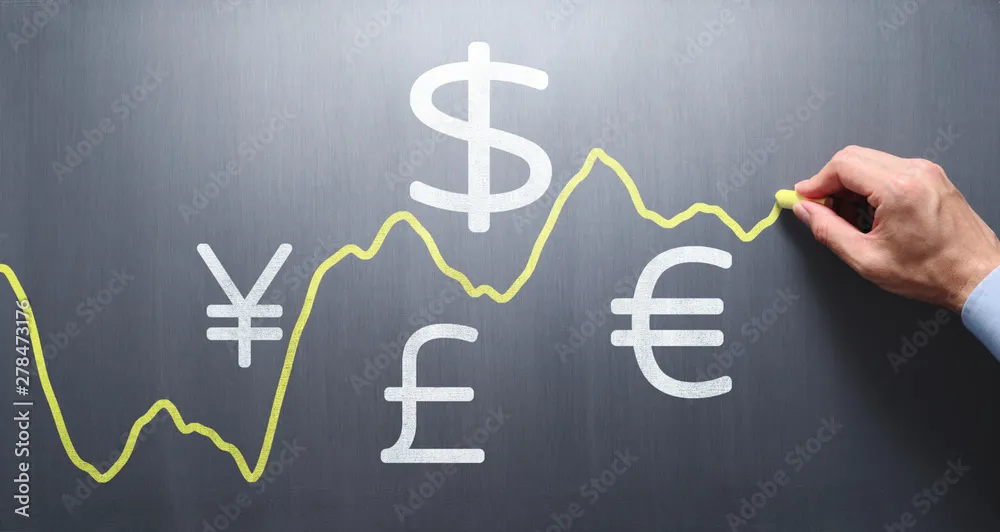
He expressed that while the exchange rate has shown notable fluctuations, these changes have not yet significantly impacted the market. As a result, there is no immediate need to alter the monetary policy objectives of the State Bank.
JOURNALIST: - Sir, how will the recent fluctuations in the USD exchange rate affect the VND and the Vietnamese market?
Mr. NGUYỄN MINH TUẤN: - To illustrate the connection between the USD/VND exchange rate fluctuations and their impact, let's take government bonds as an example. These fluctuations are indeed interconnected. When you observe the DXY index of the USD, which is based on 11 world reserve currencies, you'll notice an increase in the exchange rate. As the interest rates for USD rise, other banks are compelled to follow suit; otherwise, funds will flow to banks offering higher deposit rates. Therefore, the upsurge in the DXY index results in higher exchange rates. This, in turn, raises concerns that banks in Vietnam might need to adjust their interest rates, potentially increasing them.
The increase in VND interest rates can also prompt fears that the State Bank of Vietnam's (SBV) monetary policy activities, such as fund attraction through bills and interest rates, as well as overnight interest rates, might undergo hikes. For example, overnight interest rates, which were previously at 0.17-0.19%, have now reached 0.55%. Furthermore, the stock market index remains pertinent in this context. Currently, we are closely monitoring two forthcoming meetings in November and December held by the Federal Reserve (Fed), along with the U.S. government's aim to maintain inflation at 2%. For investors, keeping an eye on U.S. inflation indices is crucial, as high U.S. inflation might lead to tighter monetary policies that could impact the Vietnamese market.
Historically, when the Fed Fund Rate index rises, a substantial influx of capital, as evidenced by data from 1994, 1999, 2004, 2015, and 2022, flows into the U.S. currency market. Capital naturally gravitates toward higher interest rates. This shift can lead to fluctuations in the USD exchange rate concerning other currencies as they depreciate in value. For instance, the Japanese yen saw a significant decline because they kept interest rates at 0%.
According to my calculations, the VND has depreciated by slightly less than 3.5%. To prevent capital flight, the exchange rate must compensate. The depreciation of the Vietnamese currency by about 3.5%, coupled with the State Bank's decision to regulate interest rates in the opposite direction to the U.S., understandably affects market sentiment. Investors sometimes attribute recent stock market declines to exchange rate fluctuations, but they are primarily rooted in psychology and the influence of liquidity. In fact, our monetary policy has shifted from tightening to loosening. What we wish to emphasize is the necessity of continuous monitoring of U.S. inflation indices.
- In your opinion, how will the issuance of treasury bills, interbank interest rates, and exchange rate changes, as mentioned above, affect the market in the near future?
- I believe the recent fluctuations in Treasury bills by the State Bank are part of normal financial operations. To illustrate, we can liken the economy to a field, with the interbank market serving as the irrigation system for that field. This implies that monetary policy needs to influence the entire economic landscape by providing sufficient capital for its operation. The "pumping and siphoning" of funds is akin to managing water reservoirs, in this case, operated by banks. The current objective of the State Bank is to maintain an attractive VND interest rate, preventing excessive depreciation of the VND against the USD. Since the beginning of the year, the VND has depreciated by approximately 3.5%.
Another crucial point is that the VND is presently a controlled floating currency rather than a freely convertible one. The decision not to allow free conversion is grounded in the specific economic mechanism of Vietnam. We are still heavily reliant on exports and foreign direct investment (FDI). Allowing an uncontrolled exchange rate could significantly affect both of these areas. The recent Treasury bill operations of the State Bank, particularly the withdrawals, are, in my view, routine measures to bolster interbank market liquidity and manage exchange rates, rather than any major shifts in monetary policy, as we saw in the currency market in October 2022. The core issue is market psychology; people are overly concerned. Therefore, the current solution lies in implementing measures to stabilize market sentiment and managing risks when it is affected, specifically the stock market, which is influenced by this prevailing sentiment. One of these solutions is the State Bank's retention of mandatory reserve ratios for commercial banks.
- Thank you very much.
In conclusion, since the beginning of the year, the VND has depreciated by about 3.5%, making it imperative for the State Bank to maintain an attractive VND interest rate to counteract significant fluctuations in the USD/VN exchange rate.




















